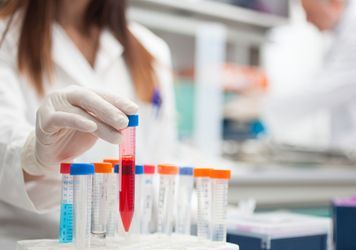Sexually Transmitted Disease Testing
Experience the difference in our STD testing services which are designed to provide you with accurate results with the utmost care, privacy, and expertise
Specialists in STD Testing
Your Health, Our Promise
STD Testing
At Alliance Obstetrics & Gynecology Group, LLC, we understand that seeking STD testing can be a sensitive and anxiety-provoking experience, which is our team of compassionate healthcare providers are committed to providing confidential, comprehensive STD testing services in a safe, non-judgmental environment. Our STD testing services are designed to empower you with the knowledge and resources you need to make informed decisions about your sexual health and protect yourself and your partners. We are dedicated to staying up-to-date with the latest guidelines and best practices in STD testing and treatment.
Our STD testing services include:
- comprehensive testing options for a full range of STDs including chlamydia, gonorrhea, syphilis, herpes, and HIV, among others
- confidential care where we prioritize your privacy from specimen collection to delivery of results which are handled with the highest level of discretion
- convenient and efficient services to ensure quick appointments and timely results
- expert guidance offering personalized counseling to discuss results, sexual health, and risk reductions strategies if needed
- prompt treatment and follow-up care to ensure overall health
- partner notification and treatment, as needed
- inclusivity and non-judgmental care where you can feel comfortable discussing your sexual health concerns without fear of stigma or discrimination
If you are sexually active and have any concerns about your sexual health, we encourage you to schedule a confidential STD testing appointment with our caring and experienced team. We aim to make your experience as comfortable and stress-free as possible. From the initial consultation to post-test treatment and support, our team is dedicated to providing the expert guidance, support, and treatment you need to maintain optimal sexual health and well-being.

STD Testing Experts
Many times, sexually transmitted infections do not cause symptoms. Testing is the only way to know for sure if you have an infection. The team at Alliance Obstetrics & Gynecology Group, LLC can test you for various infections and many of these tests do not require a pelvic exam. If you've had any type of sexual contact that can spread STDs -- like vaginal, anal, or oral sex -- schedule your consultation with us. You can book online or by phone.
STD Testing FAQ's
What defines menopause?
You’re considered to be in menopause when you’ve gone 12 months without a period. The average age of menopause is 51, but many women experience this transition between the ages of 45 and 55. I f you have a hysterectomy (with the removal of the ovaries) or cancer treatment, you may go through menopause sooner. Menopause doesn’t always cause disruptive symptoms, but if you have fluctuations in your hormone levels that interrupt your ability to work or affect your relationships and your overall sense of well-being, the physicians at Alliance Obstetrics & Gynecology Group can help.
What are the symptoms of menopause?
The hormone changes associated with menopause may cause a wide variety of uncomfortable symptoms. Usually, these symptoms appear in the years prior to menopause, a time known as “perimenopause”. The following are signs that your hormones are shifting:
- hot flashes and night sweats
- vaginal dryness
- mood swings
- loss of libido
- sleep disruptions
- depression or anxiety
- headaches
- fatigue
- brain fog
What options are available to treat menopause symptoms?
Menopause is a natural process but it doesn't have to be miserable. Treatment doesn’t aim to halt menopause but rather works to make you as comfortable as possible as you transition. At Alliance Obstetrics & Gynecology Group, we offer both hormonal and non-hormonal treatment options. When needed, we specialize in bioidentical hormone replacement therapy (HRT) to help restore hormonal balance and ease uncomfortable symptoms.
What are bioidentical hormones?
Bioidentical hormones are crafted from plant products and match the makeup of your hormones exactly and are thus used effectively by your body. Hormone treatment can be administered as a cream, oral pills, vaginal inserts, pellets inserted under the skin, or as injections. The method of delivery and the exact dosage depends on your symptoms and health history.
Should I use hormone replacement therapy?
There are risks and benefits of taking hormone replacement therapy and our physicians can help determine if HRT is right for you. Not every woman opts for HRT and not every woman is a candidate for HRT. You may benefit from lifestyle changes or other prescription medications to help ease problems associated with menopause. We believe in educating you on the different health changes that occur with menopause, such as an increased risk of osteoporosis, heart disease, and urinary issues. The physicians at Alliance Obstetrics & Gynecology Group will work with you to determine the best treatment plan for you to prevent health risks and symptoms associated with menopause.
Request An Appointment Today!
To optimize your health and wellbeing, schedule your appointment for STD testing with us at Alliance Obstetrics & Gynecology Group, LLC.



